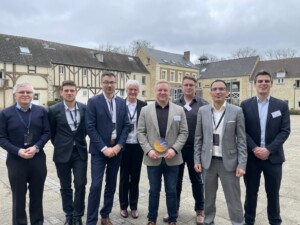Europe is promoting the concept of a Circular Economy
Carbon footprints of urban transition: Tracking Circular Economy promotions in Guiyang, China
The intCEB research project is an internationalisation project supported by EIT RawMaterials that aims to foster best practice exchanges between China and Europe on a Circular Economy, running between April 2017 and April 2018. Experiences of various projects run by the partners in the project have been exchanged. This particular success story focused on the work of CML, Leiden University and Peking University and the Guiyang city government in China.
Via the joint research, several resource-efficiency options were designed that supported Guiyang city government to make their region more circular. Such options were included in the local planning policies and are being implemented in the local “13th Five-year planning” (2016-2020). Significant economic and environmental impacts were expected to be generated.
Over 500 jobs are expected to be generated via industrial symbiosis and new low-carbon industries development. Industries in the region became more resource-efficient and the carbon footprint was mitigated.
Developing a Sino-European research agenda for a Circular Economy
Europe has been actively promoting the concept of a Circular Economy. China, one of the most important economic blocks globally, already installed a law fostering the Circular Economy in 2009. The intCEB project analysed the knowledge supply in both Europe and China on the following topics relevant to a Circular Economy, such as analytical tools and databases, as well as circular business design, governance and regional implementation practices. Based on the results, an overview was developed on how European knowledge partners representing the EIT RawMaterials Community can transfer knowledge and services to China, and in reverse.
The intCEB is the first project that created a structured analysis and exchange between Europe and China.
The collaboration fostered by the EIT RawMaterials is hence highly relevant for strengthening and disseminating the related EU policies internationally.
Members of the intCEB project consortium:
- Leiden University, The Netherlands (Lead Partner)
- Fundación Tecnalia Research & Innovation, Spain
- Ghent University, Belgium
- Royal Institute of Technology (KTH), Sweden
- National Technical University of Athens, Greece
- Delft University of Technology, The Netherlands
- University of Bordeaux, France




